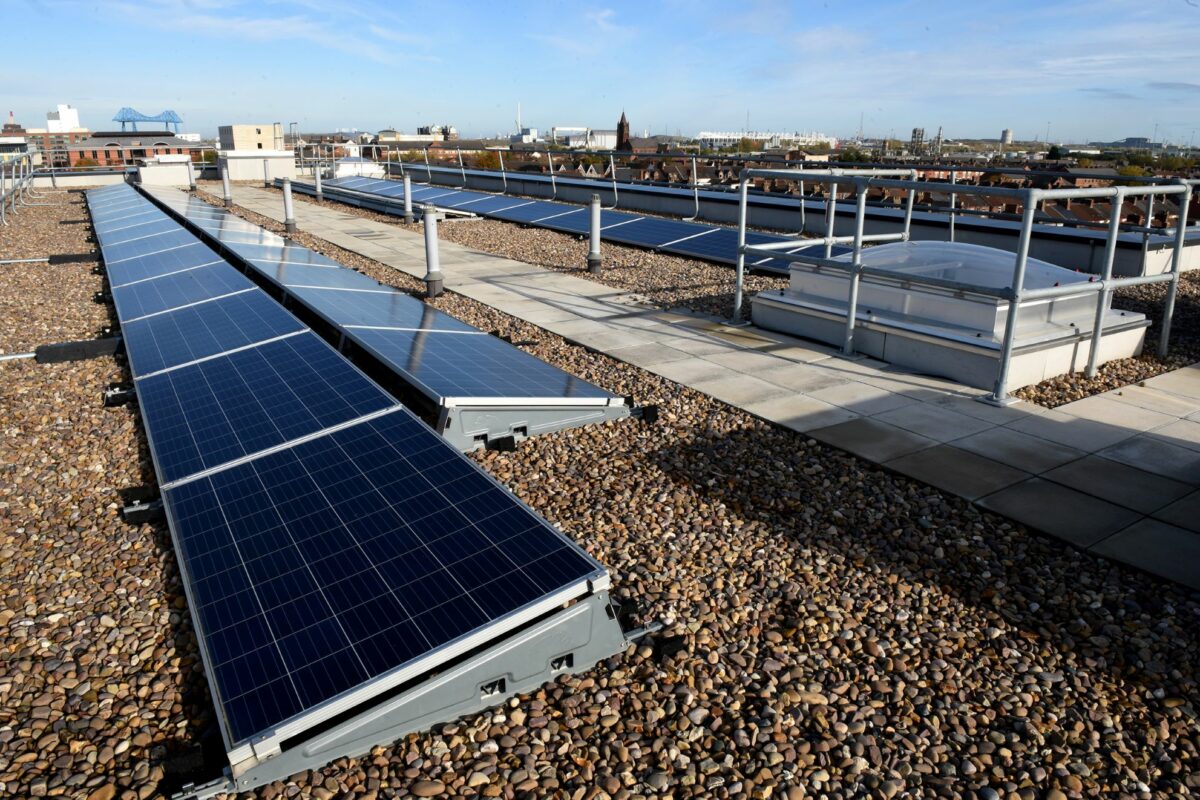
Solar panels on Teesside University’s Cornell Quarter, Image: Teesside University.
Teesside University is taking part in a multi-million pound project to increase solar cell efficiency and sustainability using mineral perovskite.
The SUNREY project (Boosting Sustainability, Reliability and Efficiency of perovskite Photovoltaic (PV) through novel materials and process engineering) is formed of thirteen international partners including Teesside University and the University of Leicester.
The Europeans Union’s research and innovation programme, Horizon Europe, has granted the project €4.25 million (approximately £3.75 million) to support the project in increasing the efficiency of perovskite solar cells.
At present, the material of choice for the fabrication of solar cells is silicon but, the production of the technology is a high-energy process.
As an alternative, perovskite solar cells – which has a very similar efficiency to silicon cells – produce fewer CO2 equivalents during manufacturing as well as requiring lower temperature.
The fall back for perovskite cells is that they are less stable than their silicon counterparts, resulting in a shorter life span, thus preventing their broader commercialisation.
Additionally, the best-performing perovskite cells contain lead – a harmful materiel to both health and the environment.
SUNREY will look at lowering this lead content and increasing perovskite efficiency.
The project will also study: novel charge transport and electrode materials; cost efficient deposition techniques; barriers and device encapsulation; and process optimisation.
To achieve these goals, simulation of device and degradation mechanisms will be critical.
“We are delighted to be taking part of this project which is destined to have a major impact on the production of renewable energy,” Professor David Hughes, associate dean (research and innovation) in the School of Computing, Engineer & Digital Technologies at Teesside University.
“Making perovskite solar cells more efficient and sustainable will enable us to harness the power of the sun more effectively, with minimal environmental impact.
“This technology will be of vital importance as the world looks to a future without fossil fuels.”
The project is being coordinated by the Fraunhofer Institute for Applied Polymer Research IAP in Potsdam in Germany,

